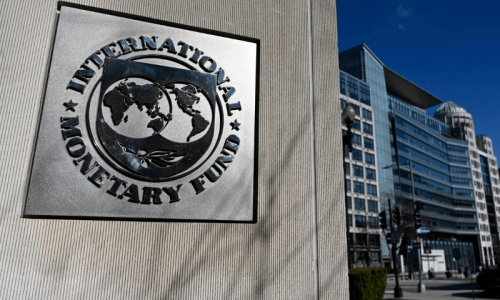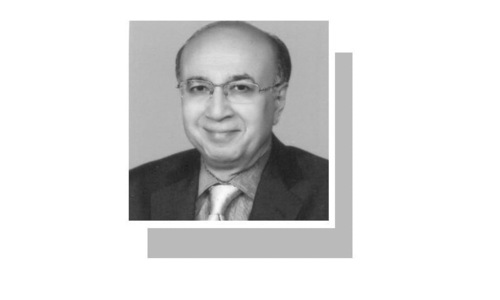Energy is the backbone of civilisation and development, but Pakistan’s energy sector is in deep crisis. This crisis is a complex web of perpetual circular debt, ill-conceived independent power producers (IPP) contracts, and outdated tariff design. Persistent power outages, unreliable supplies, rising tariffs, overreliance on non-renewable energy sources, and import dependency have further exacerbated the situation. Pakistan’s per capita energy consumption is significantly below world standards, and energy use is inefficient.
Behind all the mess is decades of mismanagement, overcentralised, and misguided decision-making complemented by the fragile regulatory framework. Above all, it is the non-realisation of past mistakes and repetition of the same. Unfortunately, the poor consumers are bearing the brunt of these systemic failures.
The efficiency of power distribution companies is heavily influenced by their management, which is centralised at the ministry level. The power sector’s circular debt has ballooned to Rs2.6 trillion. Regrettably, decision-makers tend to view it mostly as a theft issue.
Electricity theft is a problem, but it’s not the sole cause of financial mess. Theft is not possible without the connivance of the administrative staff. Maladministration often leads to overbilling consumers to cover up theft and low recoveries. For instance, the Federal Investigation Agency is investigating Lahore Electric Supply Company for overbilling consumers by 830 million units, even affecting those using just 200 units, highlighting the extent of the problem.
The underutilisation of newly developed transmission infrastructure has increased the capacity payment burden
Electricity demand is falling, further adversely impacting distribution companies’ (Discos) financials. Instead of focusing on inefficient practices, Discos blame the decline in demand for the increasing shift to rooftop solar (net metering policy). However, net metering contributed only three terra-watt hours (TWh), while demand shrank by nearly 20TWh last year. The impact of commercial load shedding on the decrease in demand is overlooked; many areas still experience load-shedding, driving consumers away from the grid.
The issue of fairness is being raised without substantial evidence. It is argued that poor consumers without a net-metering facility are subsidising wealthy consumers with net-metering. While this may be a concern in the future, last year, net-metering consumers’ electricity exported to the grid accounted for only 0.14 per cent of the total electricity procured by Discos.
Many old power plants operate at efficiency levels as low as 30pc or even less
Instead of addressing inefficiencies and supporting poorly managed Discos, the push for revising net-metering has shocked 0.11m customers (and adding) — many middle-class consumers have invested their savings in solar PV to reduce their utility bills.
A significant contributor to the financial mess is the underutilisation of expensive installed generation capacity for which capacity payments have to be made. The lack of long-term vision/ planning and focus on short-term fixes kept us adding generation capacity without complementing it with the transmission infrastructure to evacuate power.
Whatever expansion in the transmission infrastructure is made is mostly unplanned. The underutilisation of newly developed transmission infrastructure has increased the capacity payment burden.
Throughout the years, sector managers have repeatedly failed to develop a comprehensive and sustainable energy policy that meets the population’s needs. The focus has been on more addition rather than on efficiency. Many public-sector power plants built in the early 1980s and private-sector plants built in the late 1990s operate at lower efficiency levels, sometimes as low as 30pc or even less.
These plants are economically unviable and should have been retired. However, these inefficient plants are still in the system and are eligible for capacity payments. The contracts of some IPPs have been renewed despite their low efficiency.
The government’s attempt to contract with solar IPPs demonstrates its lack of planning and coherence in its policies. If successful, it will only increase the capacity payments burden.
Pakistan has an installed capacity of 45,000 MW, while peak summer demand is 30,000 MW and winter demand is at most 17,000 MW. The overestimated demand and underutilised capacity are due to a poorly managed policy framework, with no efforts to balance summer and winter demand through innovative seasonal tariffs.
The sector’s financial challenges are also linked to the tariff design, with cross-subsidies across sectors and domestic consumer categories. Some distribution companies cross-subsidise others, and the government pays subsidies to maintain uniform tariffs.
Tariff design allows for subsidies, but fiscal space is limited to finance those subsidies. Additionally, the consumer-end tariff is burdened with taxes and surcharges, increasing consumer’s financial burden and discouraging timely bill payments.
Changing tariff design is not a priority for decision-makers. Cross-subsidies are distorting electricity demand, and the industry is increasing its reliance on captive generation. Many large factories, especially in the textile industry, use energy efficiency and solar adoption to offset rising tariffs and potential Carbon Border Adjustment Mechanism (CBAM) impact.
The governance structure within the power sector is responsible for the mess that has multiplied over the years. The Ministry of Energy (MoE), with the support of consultants/ donors, formulates policies and strategies across the power supply chain—generation, transmission, and distribution. The National Electric Power Regulatory Authority oversees tariffs, licensing, and ensuring compliance with regulatory standards, but it lacks the necessary powers and capacity.
Pakistan Institute of Development Economics (PIDE) research strongly advocates for depoliticising boards of state-owned energy entities. Discos must shift their focus towards developing robust business models, enhancing their efficiencies, and improving their governance and management practices. This transformation can only be achieved when Discos are granted financial and administrative independence and decision-making power is decentralised at the company level.
The MoE’s role should be limited only to the effective oversight of the power sector and not intervention in company affairs. This would streamline decision-making processes and enhance accountability, leading to more efficient operations.
Furthermore, prioritising the commercialisation of power companies over privatisation can lead to operational efficiency gains while retaining public assets. Establishing an independent power commission composed of experts for three to five years with a target to clean up the mess can be a promising step. An effective legal and regulatory setup is crucial.
Revising the tariff design to enhance efficiency is crucial. Tariffs should accurately reflect the actual supply cost to all consumer categories and geographical markets. Redirecting subsidies through programmes like the Benazir Income Support Programme can reduce the overall subsidy burden and instil a sense of fiscal discipline, ensuring the sector’s financial sustainability.
Promoting winter electricity consumption through innovative seasonal tariffs can reduce the capacity payments burden and lessen gas resource consumption.
Afia Malik is a Senior Research Economist, and Tehmina Asad is a Research Fellow at PIDE.
X: *@malikafia2021 and @tehmina5*
Published in Dawn, The Business and Finance Weekly, July 15th, 2024
















































